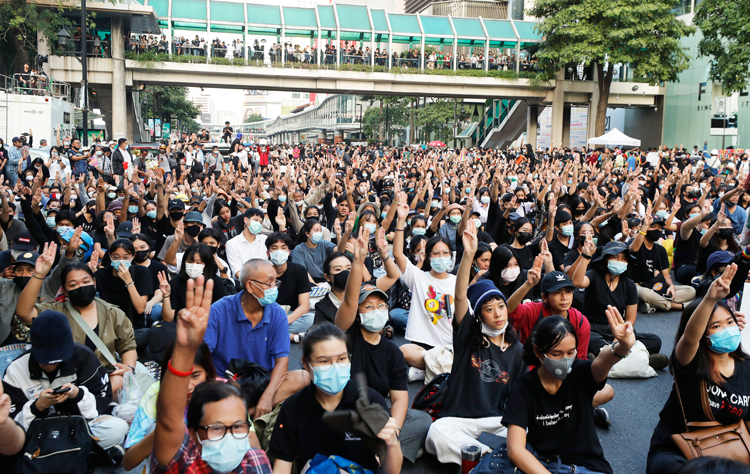“I saw the police dragging my friends outside violently, trying to stop us,” Thailand student protest leader Patsaravalee “Mind” Tanakitvibulpon told Asia.Nikkei in an interview in Bangkok Oct. 29. “I could not accept it and that has ignited my anger that changed my life forever.”
The regime’s brutality and resistance to change has brought tens of thousands of people into the streets since mid-July, demanding the ouster of Prime Minister Prayuth Chan-ocha, new elections, a halt to the military regime’s harassment of opponents, and curbing the powers of the country’s monarch.
Prayuth, a former army general, came to power in a military coup in 2014. Despite losing elections in 2019, he stayed on as prime minister, supported by a military-backed political party and the unelected military-appointed Senate.
As parliament met Nov. 17, cops attacked protesters outside with chemical-laced water cannons and tear gas. They fired live ammunition, injuring 55 people. The next day, above, 10,000 people rallied by police headquarters. “I felt I have to come out to tell them I’m not afraid of them,” a 22-year-old protester named Thanisorn told the Guardian. “We are stronger than them.”
The protests are fueled by a deep economic and social crisis facing working people that’s been accelerated by government-imposed lockdowns on jobs and trade in response to the coronavirus pandemic. Nearly three-quarters of Thailand’s labor force has suffered major income losses.


